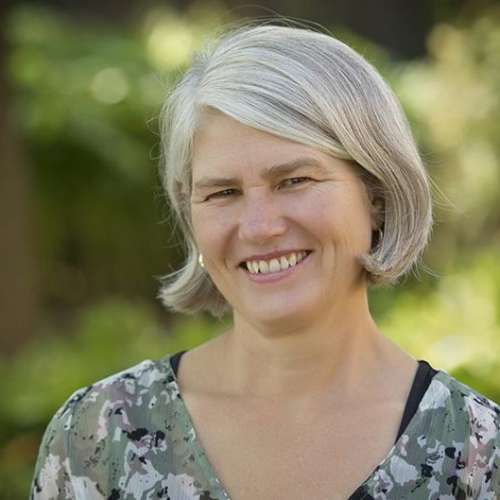
With Ottawa currently discussing a federal plan to reduce Canadian greenhouse gases, research by University of Guelph environmental scientists suggests that planting cover crops may help farmers mitigate greenhouse gas emissions from soil.
The team’s field experiments showed for the first time that planting cover crops such as red clover to protect and enrich soil over the winter can also reduce agricultural emissions of nitrous oxide (N2O), a potent greenhouse gas.
At the same time, the researchers found that factors including varying weather, time of year, type of crop and farm practices may mean little benefit from cover cropping – or may even increase soil emissions of the gas.
“Cover crops can be good for reducing emissions but sometimes they can lead to an increase in nitrous oxide,” said Dr. Kira Borden, holder of a Banting Post-doctoral Fellowship in the Ontario Agricultural College’s School of Environmental Sciences (SES). “Our work is trying to uncover why we see differences given those various factors.”
She and other SES researchers presented their work during a conference this past summer held by the Ecological Society of America and the Canadian Society for Ecology and Evolution.
Cover crops can prevent nitrous oxide release

More Ontario farmers are planting cover crops after their regular summer harvest so that plants remain on the field in the off season.
Besides sequestering carbon, the cover crop takes up nitrogen left over from fertilization of the main crop, so the nutrients end up in plant biomass. That diverts excess nitrogen from soil microbes, which might otherwise convert it into N2O, allowing it to leave the soil and enter the atmosphere as N2O.
Nitrous oxide is produced in much smaller amounts than the main greenhouse gases of carbon dioxide and methane. But it can have an outsized impact on atmospheric warming compared to those other gases, particularly during winter freeze-thaw events.
“Molecule for molecule, it’s about 300 times more potent,” said SES professor Dr. Claudia Wagner-Riddle. “It punches above its weight.”
That’s why farmers and policy makers alike hope to learn more about the potential benefits of cover crops to help Canada meet its Emissions Reduction Plan, announced this past spring.
The plan aims to cut emissions from oil and gas as well as electricity generation by 2030. Ottawa is calling for a 30-per-cent cut in greenhouse gas emissions from soils caused by nitrogen fertilizer. Agriculture accounts for about 10 per cent of Canada’s total greenhouse gases.
Researchers aim to provide mitigation strategies to farmers
Through their ongoing study, the U of G researchers hope to learn more about how cover crops help to mitigate N2O emissions during winter.
Beginning in spring 2018, the team studied two eight-hectare fields over three years to compare effects of a simple crop rotation with a diverse crop rotation that included cover crops. Wagner-Riddle’s team uses highly specialized equipment to monitor nitrous oxide emissions on farm fields.
The team has included master’s students Kan Gao and Nicole Menheere.
During separate winters, freeze-thaw events led N2O emissions from the fields to be mitigated or to spike. The team is continuing its studies to learn more about various factors affecting mitigation or release.
“Effects of cover cropping can be dynamic,” said Borden. “We hope ultimately to recommend management strategies to farmers on what kinds of cover crops to use as well as how to rotate crops from one season to the next.”
Besides potentially mitigating greenhouse gas emissions, crop rotation including cover crops helps improve soil health, prevent soil erosion and increase yields of subsequent crops.
“We know cover crops are important for soil health and preventing erosion,” said Dr. Kari Dunfield, SES professor and Canada Research Chair in Environmental Microbiology of Agro-ecosystems.
“We want to ensure that they’re not having an environmental impact. We want to protect the soil, but we don’t want to cause another problem.”
Contact:
Dr. Claudia Wagner-Riddle
cwagnerr@uoguelph.ca
